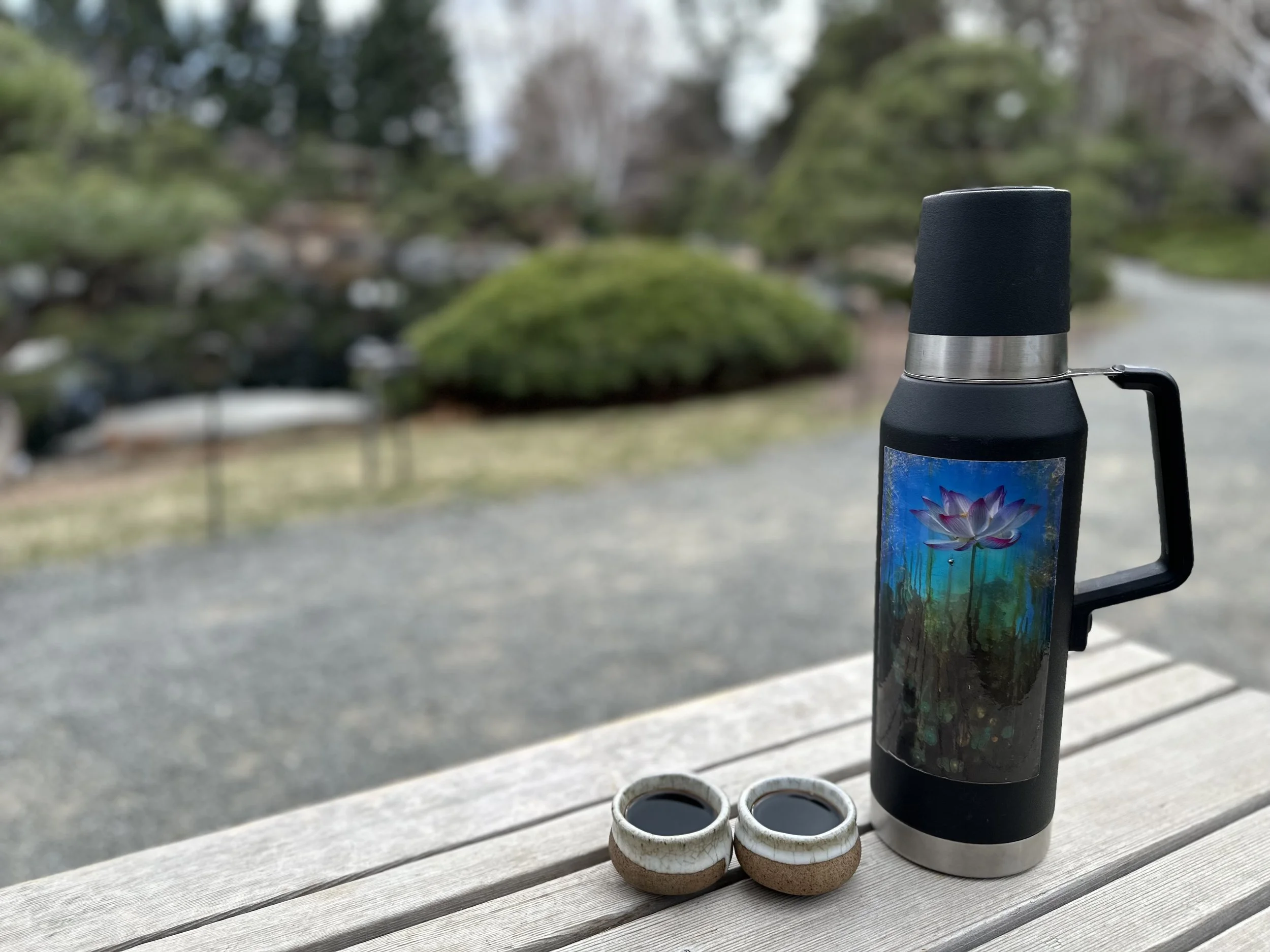
Brewing Tea
Brewing and drinking tea can be a meditative process that allows us to delve inward and connect to our innermost thoughts and feelings. As we sit and patiently wait for the water to boil, we can use this time to observe and quiet the mind, bringing focus to the present moment. The act of brewing begins as a sensory experience, the aroma of the tea in the pot, and warmth of the cup in our hands. This simple contemplative practice allows us to take a pause from the active movement of daily life and discover a sense of peace and tranquility in this space.
Demonstrating a rinse and one steep with a antique sheng puerh named ~Illumination
In the shared ritual of pouring, serving and drinking tea, there is a wondrous exchange of generosity and receiving, a tangible expression of care and appreciation for one another's presence. Through these simple gestures alchemized by the spirit of tea, bonds are forged, friendships are nurtured, and the seeds of community are planted, rooted in the fertile soil of a shared experience.
Some tea is suitable for a thermos brew and incredible for taking out and connecting in nature. Aged or stable puerh can usually handle hotter temperatures and longer brew times.
Thermos brew notes for teas in the Shop…
The Spirit of Water
The quality of water used is incredibly important, as it can significantly affect the overall experience of the tea. Here are a few reasons why water quality matters when making tea:
Water is the primary ingredient in tea, so its taste and tone will directly impact the flavor of the brewed tea. Impurities, such as chlorine or minerals, can alter the taste of the tea, resulting in a less enjoyable drinking experience. High-quality ‘living” water, allows the higher nature and energy of the tea leaves to shine through.
The mineral content of water can affect the extraction of flavors from the tea leaves. Water that is too hard (high in minerals such as calcium and magnesium) can make the tea taste overly strong or bitter, while water that is too soft (low in minerals) may result in a weak or flat-tasting brew. Finding a balance in mineral content is key to brewing a well-rounded cup of tea.
The pH level of water can also impact the extraction from the tea leaves. Ideally, water used for brewing tea should have a slightly acidic to neutral pH, typically between 6.5 and 7.5.
Water quality also relates to cleanliness and purity. Using clean, filtered water helps ensure that any impurities or contaminants are removed. If you have access to spring water, consider How we heat the water, burner and kettle also has a direct energetic and mineral impact.
Consistency in water is crucial for those who are particular about their tea preferences, while others may not notice. Using high-quality water with consistent properties (such as mineral content, pH, and taste) ensures that each cup of tea is brewed to the same profile and characteristics.
Overall, the quality of water used is essential for preserving the integrity of the tea leaves and achieving consistency. By paying attention to water quality and always exploring new ways, we can expand our awareness through experience and fully appreciate the nuances of different tea expressions.




